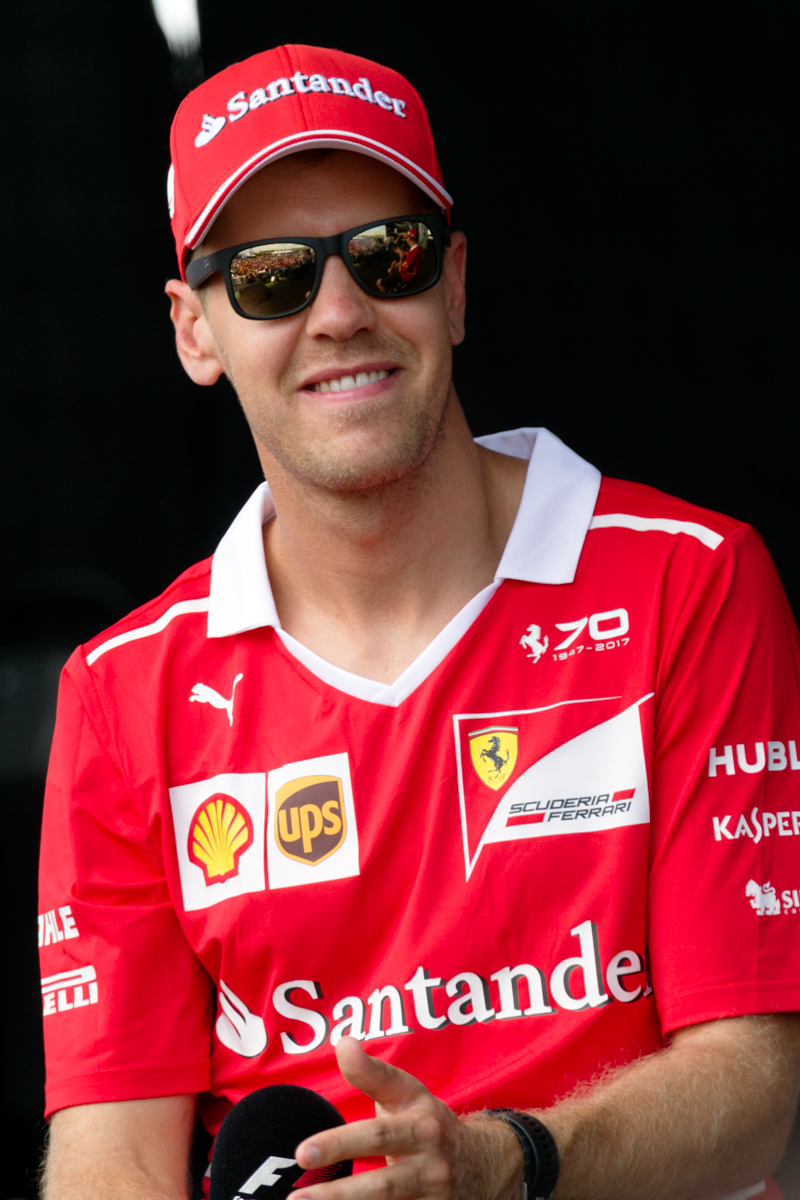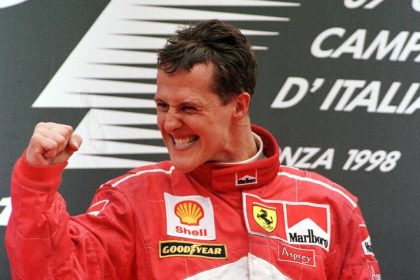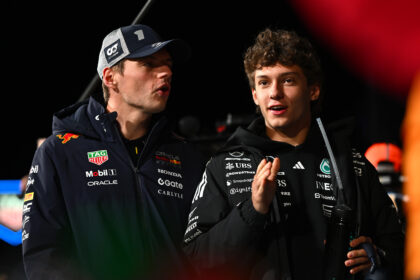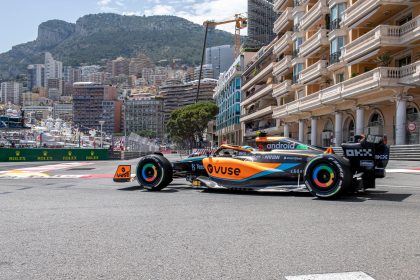If Formula 1 is a theatre of heroes and villains, then Sebastian Vettel has played both roles with equal conviction. Loved by the paddock, loathed by the critics—his journey is a study in how greatness can be both a blessing and a curse. On this June day in 2025, as the sport continues to evolve, Vettel’s legacy remains a mirror for the best and worst instincts of the racing world. Let’s take a walk down the pit lane of memory, where applause and boos echo with equal force.
- The Meteoric Rise: From Wunderkind to World Champion
- The “Crash Kid” and the Birth of a Villain
- Ferrari: The Underdog Years and the Humanization of a Champion
- The Critics’ Chorus: Why the Loathing?
- Loved by the Paddock: The Real Sebastian
- The Final Act: Activist, Elder Statesman, and the Softening of Hearts
- The Numbers Don’t Lie: Vettel’s Place in History
- The Legacy: A Champion’s Contradiction
The Meteoric Rise: From Wunderkind to World Champion
Sebastian Vettel’s story begins, as all good F1 tales do, with a flash of precocious brilliance. In 2008, at Monza, a rain-soaked Italian Grand Prix saw a 21-year-old Vettel claim victory for Toro Rosso, making him the youngest winner in Formula 1 history at the time. The paddock was stunned; the critics, momentarily, were silent.
His promotion to Red Bull Racing in 2009 was the start of an era. By 2010, Vettel had become the youngest World Champion, a record that stood as a testament to his raw speed and relentless focus. What followed was a period of dominance rarely seen outside the Schumacher or Hamilton dynasties: four consecutive world titles (2010–2013), 38 wins for Red Bull, and a record nine consecutive victories to close out 2013.
But as the wins piled up, so did the grumbling. The British press, in particular, seemed to take umbrage at the young German’s finger-wagging celebrations and his uncanny knack for making the sport look easy. The paddock, meanwhile, saw a driver of rare talent and work ethic. As Christian Horner put it:
“Sebastian is relentless. His attention to detail and work ethic are second to none. He’s a true team player.”Christian Horner
For a taste of the duality that defined Vettel’s early years, watch this thoughtful breakdown: The Two Sides Of Sebastian Vettel – YouTube
.
The “Crash Kid” and the Birth of a Villain
Success, as ever in Formula 1, breeds resentment. Vettel’s early career was not without its rough edges. The 2010 Turkish Grand Prix saw him collide with teammate Mark Webber, earning the moniker “crash kid” from McLaren’s Martin Whitmarsh. The critics pounced, painting Vettel as reckless and immature.
The infamous “Multi-21” incident in Malaysia 2013—where Vettel ignored team orders and overtook Webber for the win—cemented his reputation as a pantomime villain. The paddock, privy to the complexities of intra-team politics, understood the pressures. The fans and media, less so. Vettel was booed on podiums across Europe, his every move dissected and derided.
As recounted by The Race:
“Vettel has always attracted a disproportionately large cohort of detractors determined to condemn his every move, which is completely at odds with both his achievements and his career.”The Race, 2023
For a detailed timeline of how Vettel went from “the hated fingerboy” to a beloved champion, see: F1 Timeline: How Sebastian Vettel went from ‘the hated fingerboy’ to …
Ferrari: The Underdog Years and the Humanization of a Champion
When Vettel joined Ferrari in 2015, the narrative began to shift. No longer in the dominant car, he became the underdog, the man tasked with restoring the Scuderia to glory. His wins in Malaysia, Hungary, and Singapore that year were met with rapturous applause. The critics, for once, softened.
But the romance was short-lived. Ferrari’s strategic blunders and Vettel’s own mistakes—most notably his crash from the lead at Hockenheim in 2018—became fodder for those who doubted his mettle under pressure. The 2019 Canadian Grand Prix, where Vettel was penalized for an unsafe re-entry and lost the win to Hamilton, was a microcosm of his Ferrari years: flashes of brilliance, marred by frustration and controversy.
Yet, within the paddock, Vettel’s leadership and passion were never in doubt. As Maurizio Arrivabene, then Ferrari team principal, noted:
“Sebastian brought passion and leadership to Ferrari. He motivated everyone in the team.”Maurizio Arrivabene
The Critics’ Chorus: Why the Loathing?
Why did Vettel, a driver of such obvious talent and decency, attract such vitriol? The answer lies in the peculiar alchemy of Formula 1 fandom and media. As The Race observed, Vettel’s early success was seen by some as unearned, a product of superior machinery rather than innate genius. His modest, sometimes awkward public persona did little to endear him to those who preferred their champions brash and self-promoting.
The “Multi-21” saga, his radio outbursts, and high-profile mistakes at Ferrari all fed a narrative of a driver who cracked under pressure. The British press, still smarting from the Schumacher years, seemed particularly keen to cast Vettel as the villain. And yet, as the years wore on, the caricature faded, replaced by a more nuanced appreciation of his character.
For a deep dive into the psychology of Vettel’s critics, read: Why do so many hate Sebastian Vettel? – The Race
Loved by the Paddock: The Real Sebastian
Inside the paddock, however, Vettel was always a different man. Fiercely intelligent, quick-witted, and deeply respectful of the sport’s history, he earned the admiration of peers and rivals alike. Lewis Hamilton, his great adversary, once said:
“Sebastian is one of the most respectful drivers out there. We’ve had our battles, but there’s always been mutual respect.”Lewis Hamilton
Younger drivers, too, found in Vettel a mentor and role model. George Russell, now a leading light of the new generation, remarked:
“Seb’s always been willing to give advice to younger drivers. He’s a role model.”George Russell
And let’s not forget his sense of humor—a trait that endeared him to teammates and journalists alike, even as the critics sharpened their knives.
The Final Act: Activist, Elder Statesman, and the Softening of Hearts
Vettel’s final years in Formula 1, first with Ferrari and then with Aston Martin, saw a remarkable transformation. No longer the ruthless winner, he became the sport’s conscience—an outspoken advocate for environmental causes, diversity, and driver welfare. The paddock, once divided, now stood united in admiration.
His retirement in 2022 was met with genuine emotion. There were no boos, only applause and tears. The critics, at last, seemed to recognize the depth of the man they had so long misunderstood.
As Sky Sports F1 put it:
“Vettel’s transformation from a ruthless competitor to a respected elder statesman has been remarkable. He’s universally admired for his integrity and passion.”Sky Sports F1
The Numbers Don’t Lie: Vettel’s Place in History
Let’s take a moment for the cold, hard facts—a language even the critics must respect.
Years | Team | Championships | Wins | Notable Events/Controversies |
|---|---|---|---|---|
2007-2008 | Toro Rosso | 0 | 1 | Youngest winner (Monza 2008) |
2009-2014 | Red Bull Racing | 4 (2010-13) | 38 | Multi-21, 9 consecutive wins (2013) |
2015-2020 | Ferrari | 0 | 14 | 2017 Baku clash, 2019 Canada penalty |
2021-2022 | Aston Martin | 0 | 0 | Podium in Baku 2021, retirement announced |
- 4 World Championships
- 53 Grand Prix wins (third all-time as of 2024)
- 57 pole positions
- Most consecutive wins in a season: 9 (2013)
- First win for Toro Rosso (2008, Monza)
The Legacy: A Champion’s Contradiction
So, what is Sebastian Vettel’s true legacy? Is he the ruthless winner who ignored team orders, the “crash kid” who made costly mistakes, or the wise elder who mentored a new generation? The answer, of course, is all of the above.
Vettel’s career is a reminder that greatness is never simple. He was loved by those who knew him best, loathed by those who saw only the headlines. In the end, perhaps that is the fate of all true champions: to be both hero and villain, depending on where you stand.












